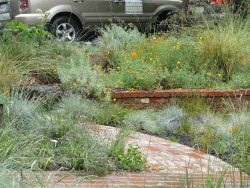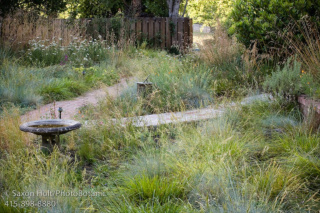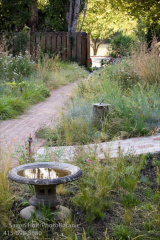Lot size: 4,000 sq. ft. front garden on tour, 100% native
Garden Age: Garden was planted in stages, beginning in the fall of 2006
Years on the Bringing Back the Natives Garden Tour: 9
Showcase Feature
This attractive, tranquil garden, designed by David Bigham and installed by Barbara, features a sunny meadow with low-growing grasses, sedges, and wildflowers surrounded by taller borders of grasses, wildflowers, and shrubs. A phalanx of soaproot lines the walkway, their delicate evening flower displays attracting large numbers of yellow-faced bumblebees.
Other Garden Attractions
-
• Household water bill has been dramatically reduced since removing the lawn and replacing it with natives.
• All species in the garden are native to the San Pablo Creek watershed; most plants were grown from seed or cuttings originating locally.
• A substantial coast live oak tree growing near the driveway was removed for fire risk mitigation in early 2025; this area has been planted with sun-adapted shrub species.
Managing the Garden
Gardens evolve! The volunteer coast live oak seedlings along the parking strip are now twenty-five feet tall, and the formerly sunny upper area beneath them is now shady. Native Here Nursery started the valley oak with acorns collected from a massive historic oak growing in downtown Orinda; Barbara and Phil’s tree is now 30 feet tall.
The last major reorganization of the garden was in 2010—those shrubs and perennial grasses are now well established. In 2023 the shady area next to the house was rearranged; some too-large plants were replaced with smaller ferns, wild ginger, and ocean spray. New locally-native species continue to be tested; Barbara and Phil are aiming for maximum diversity with minimal water inputs.
Although this home is situated on the happy side of Calfire’s “moderate risk” area, the owners wish to reduce risk to themselves, their neighbors, and fire personnel. They are working toward making their home and garden more ignition-proof through pruning, placement of plantings, removing combustible materials near the house, and installation of gutter guards and vent screening.
Gardening for Wildlife
In addition to bumblebees and many other native insects—and occasional monarch, pipevine swallowtail, and anise swallowtail butterflies—this garden is home to ringneck, sharp-tailed, gopher, and garter snakes; slender and arboreal salamanders; fence and alligator lizards; and skinks. Since the garden was transformed there has been a great increase in the number of and variety of birds—western bluebirds, Nuttall’s, downy, and acorn woodpeckers, ruby-crowned kinglets, Swainson’s thrushes, house finches, five kinds of sparrows, California quail, chickadees, and oak titmice—a total of 43 species have been seen in the garden. Quail nest under the large grasses, and lesser goldfinches and titmice raise their young in the trees.
Keystone species in this garden (watch this talk by Doug Tallamy!)
Keystone species—our own, local ecological powerhouse plants— in this garden include coast live and valley oaks, currants, wild rose, lupine, hazelnut, sages, strawberry, aster, snowberry, coffeeberry, oceanspray, buckwheat, honeysuckle, and strawberry.
Green Home Features
Barbara and Phil have a plug-in hybrid car, solar panels, and, more recently, they installed a heat pump for whole-house heating and cooling. Their gas water heater will soon be replaced by a heat pump. The ancient gas clothes dryer will be replaced when it breaks, thus getting their house entirely off gas.
Barbara notes that one of the most cost-effective actions has been to ensure that their house was adequately insulated. To that end, they added attic insulation, recently replaced windows with more energy-saving dual-pane windows, and had an energy audit to detect air leaks.
Green Home Info: 88% reduction in carbon footprint!
Garden Talks
11:00 and 2:00 “”Home hardening and fire-wise landscaping to manage wildfire risk—a journey”” by Barbara Leitner.
Photos and descriptions of plants
Video
“Our local native plant garden” video by Rachel Styer











































